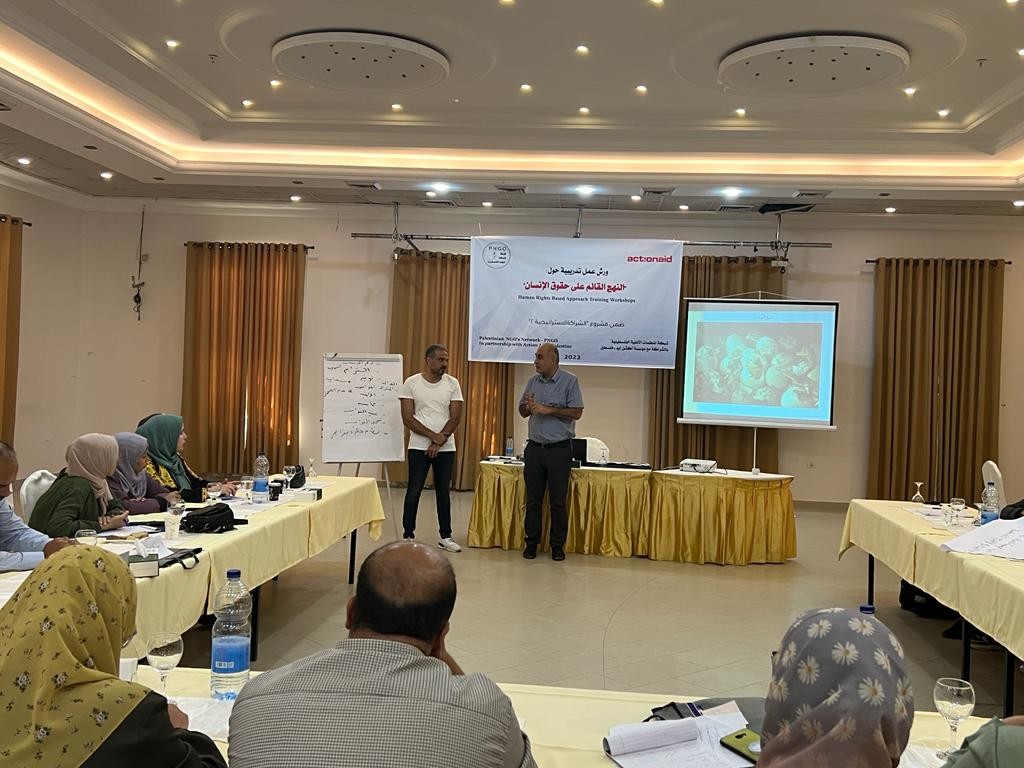Palestinian Non-governmental Organizations Network (PNGO), concluded three training sessions on the applicability of human rights-based approach for staff workers within non-governmental organizations, private sector, Ministry of Local Government and local municipalities.
The training were held for nine consecutive days in Gaza city, in partnership with ActionAid-Palestine organization, within the "Strategic Partnership" project.
Sixty male and female participants, , attended the sessions, which addressed various subject matters including an introduction on the human rights-based approach.
Among the main topics were the right to development, concept of human rights for civil society organizations, understanding of the principles, practices and policies that promote a rights-based approach to development, with focus on ' leaving no one behind' principle.
The sessions also focused on possible tools and mechanisms that could be employed in applying rights-based approaches to achieve sustainable development (SDGs), and to develop participants’ skills in using the rights-based approach to plan, implement and evaluate projects and programs implemented by local actors including NGOs, municipalities, and the private sector in various sectors.
Amjad Shawa, Director of PNGO, asserted that such sessions are aimed at contributing to development of non-governmental organizations, private sector institutions and municipalities, in a way that would build up capacities of their staff on the basic concepts of human rights-based approach which represents the conceptual framework for the sustainable development process and the promotion and protection of human rights principles based in accordance with international human rights agreements and conventions.
He pointed out that development including related policies and schemes should concentrate on rights and corresponding obligations stipulated in international law, , in a way that would reinforce sustainable development and empower local citizens themselves, especially most marginalized ones, in order for them to take part in decision-making and social accountability.
From its part, the team of trainers made clear that the main purpose of training is educating trainees how to apply basic human rights and all relevant international conventions.
The team also noted that trainees should be aware of the fact that human rights-based approach should be applied in the structures and various policies and programs of their organizations.
It also asserted that involving principles of human rights in the works of non-governmental organizations, civil society organizations and private sector institutions, when it comes to various programs and projects, is something important.
Participants of the training sessions believed that the sessions enabled them to get some good knowledge about human rights, relevant international conventions, objectives and plans of sustainable development 2030, as well as the humanitarian principle of 'leaving no one behind'.
They also explained that they got to know about the needed mechanisms to ending poverty, bridging gabs, fighting discrimination and making sure of a conceptual framework that all duty bearers and stakeholders can use in certain common work to fulfil their obligations, for the best of their actions and in a way that would leave no one behind, within their drive to achieve objectives of sustainable development at the national level.




